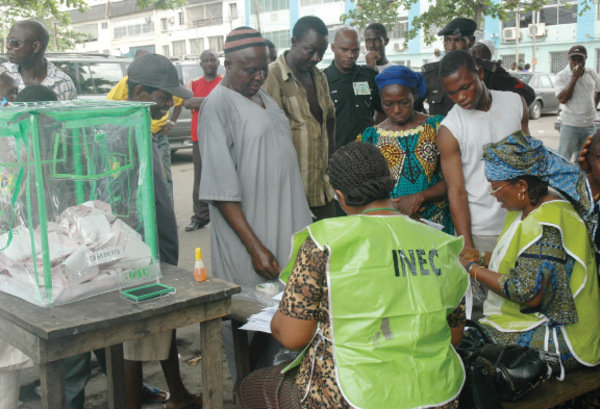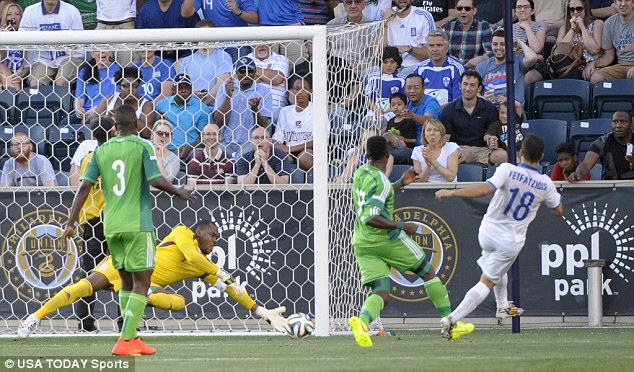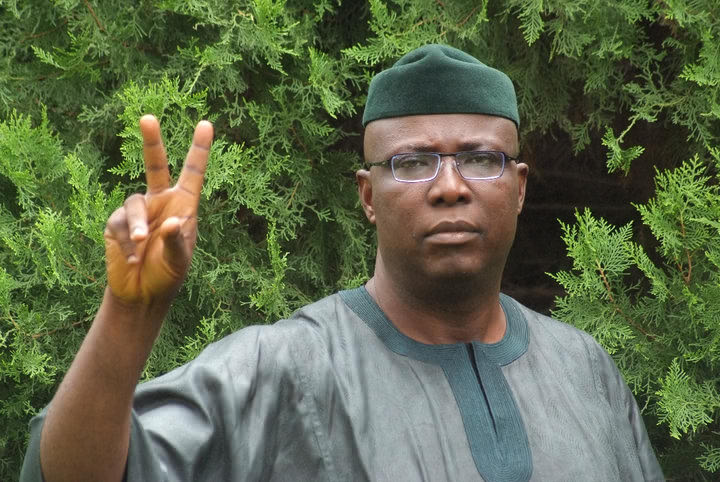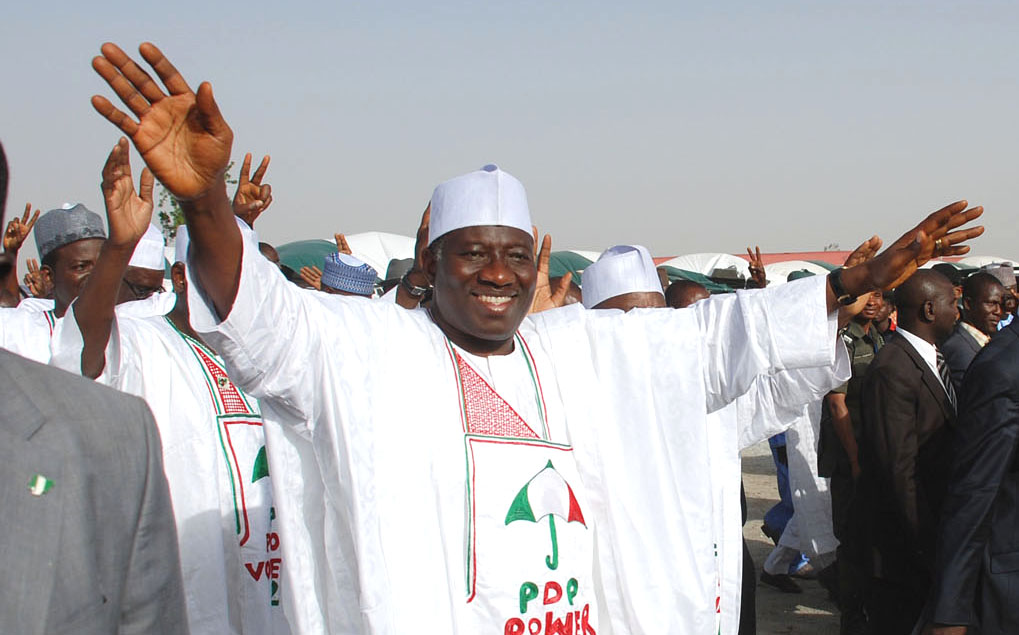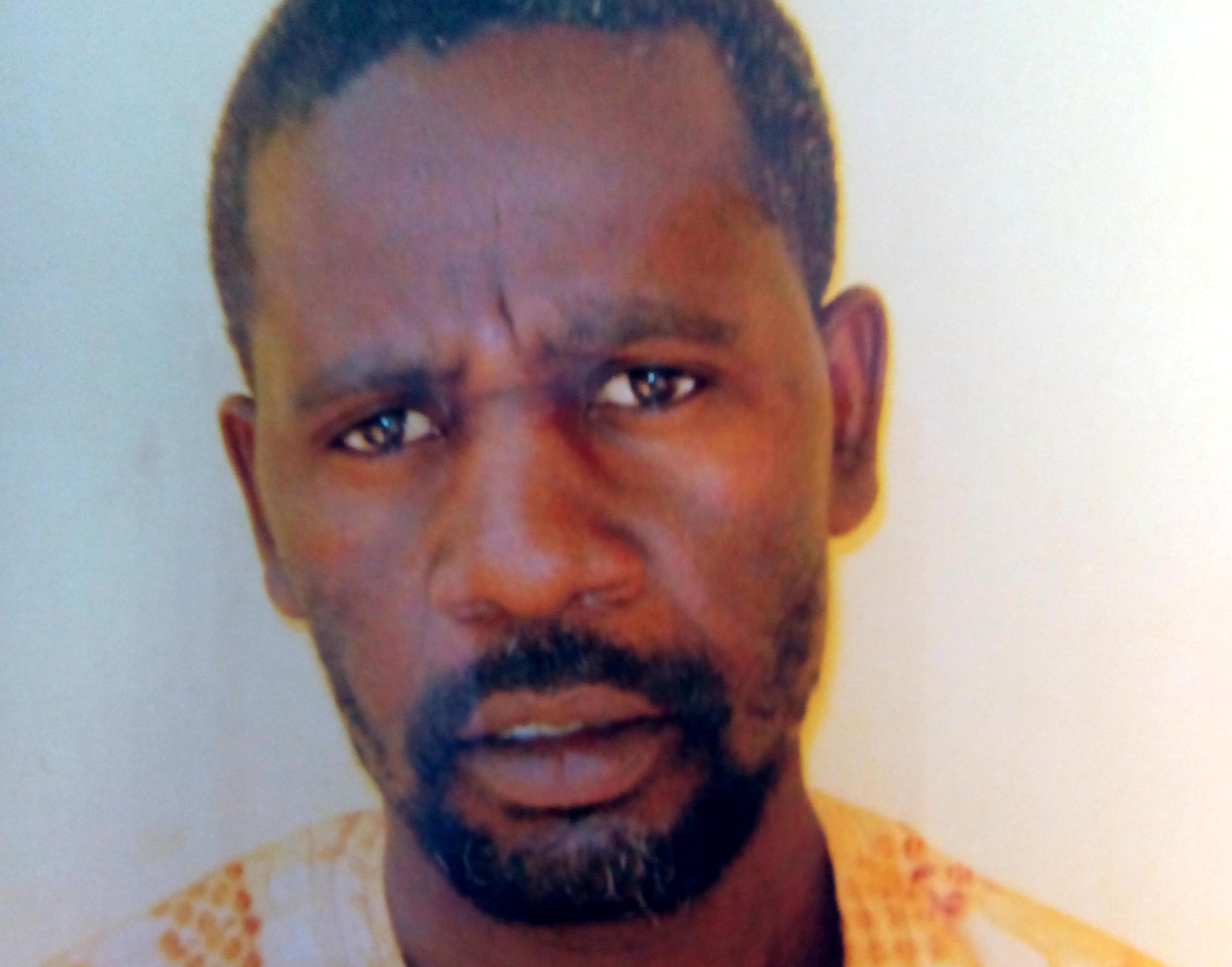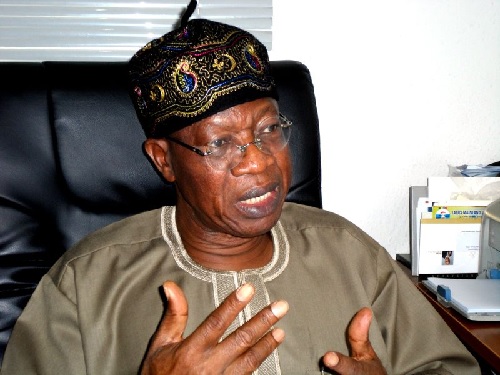The Independent National Electoral Commission (INEC) has fixed presidential and legislative elections for February 14, 2015. Valentine’s Day 2015 would be an important date for Nigeria; the outcome of the presidential elections could have implications for the strengthening or destruction of Nigeria.
Steps should be taken to sensitise the people on the benefits of free, fair and violent-free elections, the principles of a democratic system, civil election of representatives, one man-one vote and the acceptance of the decision of the majority.
Electoral violence in Nigeria has always been preceded by pre-election propaganda and dogma, orchestrated to manipulate an ignorant youth population to resort to violence in pursuit of diabolical political interests. In all past cases, from the ‘Action Group’ crises of 1962 to the post-presidential election violence in 2011, violence has not served any reasonable purpose for the youths who are killed and instigated to carry out mass murders during election cycles. Please be wise.
As Nigeria approaches the 2015 elections, the signs are ominous. Never has the information system been so manipulated and saturated with so much propaganda, misinformation and dogma. Unfortunately, it is not just politicians who are guilty of deliberately insisting on spiking the national discourse.
Advertisement
It is remarkable how supposed experts, well-educated and supposedly well-informed sections of the Nigerian society, civil society, religious and traditional leaders, journalists and even apolitical citizens are at the forefront of promoting the ‘propaganda dogma’ that currently permeates the country.
The implication of the prevalent rate of propaganda and dogma in Nigeria today is that it has made rational analysis of policy issues impossible, leaving a very large portion of society misinformed; subsequently, the people are manipulated to take positions that have outcomes that are opposite to what they desire.
That is the power politicians wield over a gullible society. We must work hard to change this narrative, to provide better opportunities for rational debate and discourse, to inform the public appropriately, and to let the people make decisions from well-informed positions. These are necessary qualities required to be in place as a springboard for the development we seek.
Advertisement
I would briefly give an example of misplaced narratives in Nigeria using the popular fallacy of “A Declining Nigerian Economy” as an example
The Nigerian economy
The propaganda of a declining national economy is quite prevalent in Nigeria. There is a disproportionate amount of the poor in Nigeria, as we know. However, helping the poor out of poverty involves education and motivation, support and information — not tales of woe and hopelessness. For those who wish to know, the Nigerian economy is booming; the stats and data all show this.
Quite often, arguments are made that Nigeria’s robustly-growing GDP does not reflect on the table of the poor man. Obviously it won’t. No country supplies food to the table of the poor. The productive sections of society who contribute to GDP reap bountifully. The path to success in a competitive society such as Nigeria is persistent hard work, personal effort and perseverance to lift oneself to financial stability. In summary, you have to tap into the GDP; the GDP would not tap into you. On financial success, indeed you’re on your own (OYO). That is the reality anywhere.
Advertisement
Anyone who tells you that Nigeria is so rich and that a messiah in power would make each of us wealthy is simply insulting your intelligence. Emancipation would not come from politicians but by our own effort and perseverance.
While we desire to do so much more to grow the Nigerian economy and achieve a better society, it is important we acknowledge that progress is a measure of the distance covered between where you are coming from and where you are today, and indeed we have come a long way in Nigeria.
National GDP does not measure the productivity of the FG, but rather the cumulative productivity of each component productive business, city, state, etc.
The propaganda that promotes the denial of GDP growth as a measure of national economic prosperity is ironic. The biggest contributor to Nigeria’s GDP is Lagos State, the seat of the opposition. Reliable economic stats and figures show that Lagos contributes between 20 – 25% of Nigeria’s GDP. Lagos is one of the fastes-growing metropolises on earth; Lagos cannot be booming while the Nigerian economy trends in the opposite direction. Where Lagos goes, Nigeria follows.
Advertisement
Since colonial times, Lagos has always had a history of blazing a trail in Nigeria’s economic prosperity and development. The productivity and creativity of its residents is remarkable, and should be promoted as a model. Rather than an argument against national economic growth, the narrative from critics of the national economy should be pointing at Lagos as a good example for other states to emulate. As it is the driver of the economic prosperity of Nigeria, the opposition is in its right to stake a claim of joint responsibility for the prospects of the Nigerian economy.
To direct the path of Nigeria towards a more prosperous future for all, we all need to seek solutions for our numerous problems. For the youths, especially those who are not members of any political party, empowerment would require that you keep your independence and power of rational choice prior to elections and after elections.
Advertisement
Let us not seek an APC answer or a PDP answer, but rather the answers that empower us as a nation. Let us not make finger-pointing our proposals for solutions; we must all accept responsibility for Nigeria.
The future of Nigeria lies in our hands; the youths of today have the power to make a difference for tomorrow. We do not need to wait to become governors, presidents or senators etc. to make a difference. The bottom line of a better society is the impact we make on our community and the immediate world around us, our cumulative contribution to GDP, to the development of our neighbors, relatives, friends, and so on.
Advertisement
I believe in Nigeria; there is a “Nigerian Dream” for those who search diligently; there is a spirit that can be exploited for a positive effect in being Nigerian. I have seen the “Nigerian spirit” at work too often: men and women who have gone on from nothing to great success; filling-station attendants who have gone on to become founders/CEOs of multinational corporations; and people who have gone on from being plantain seller to global music superstar, broke and defeated to governor, lecturer to president, hounded activist on death lists to governor, and from prison to presidency.
While the path to a fulfilling life in Nigeria is challenging, there is a path to success; it is our responsibility to find that path and show the way to others within reach.
Advertisement
It is also important to remember that nobody is captive to national trends. Everyone can improve his or her own fortune, notwithstanding the performance of the rest of society is doing. Let no one be deceived into despondency. If “they” can make it in Nigeria, yes you can!
Start by being informed and voting wisely in 2015.

